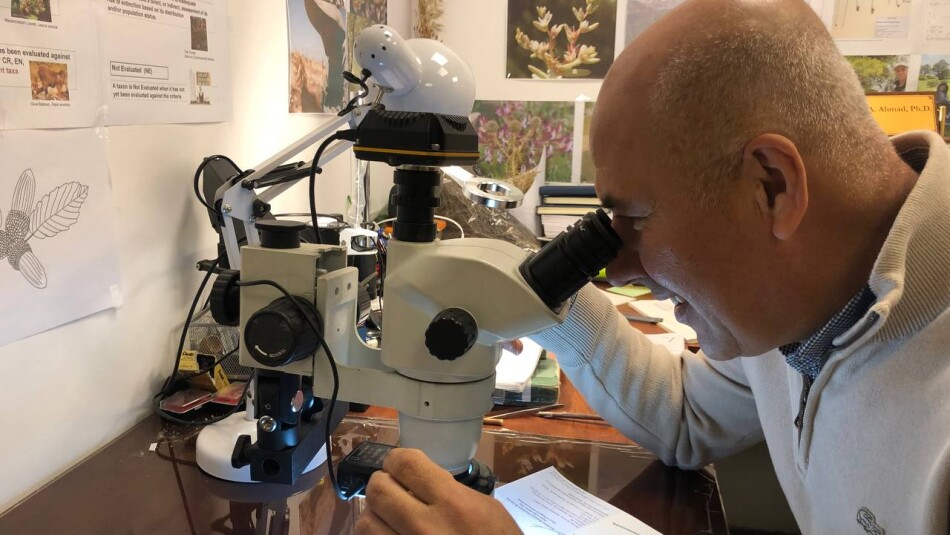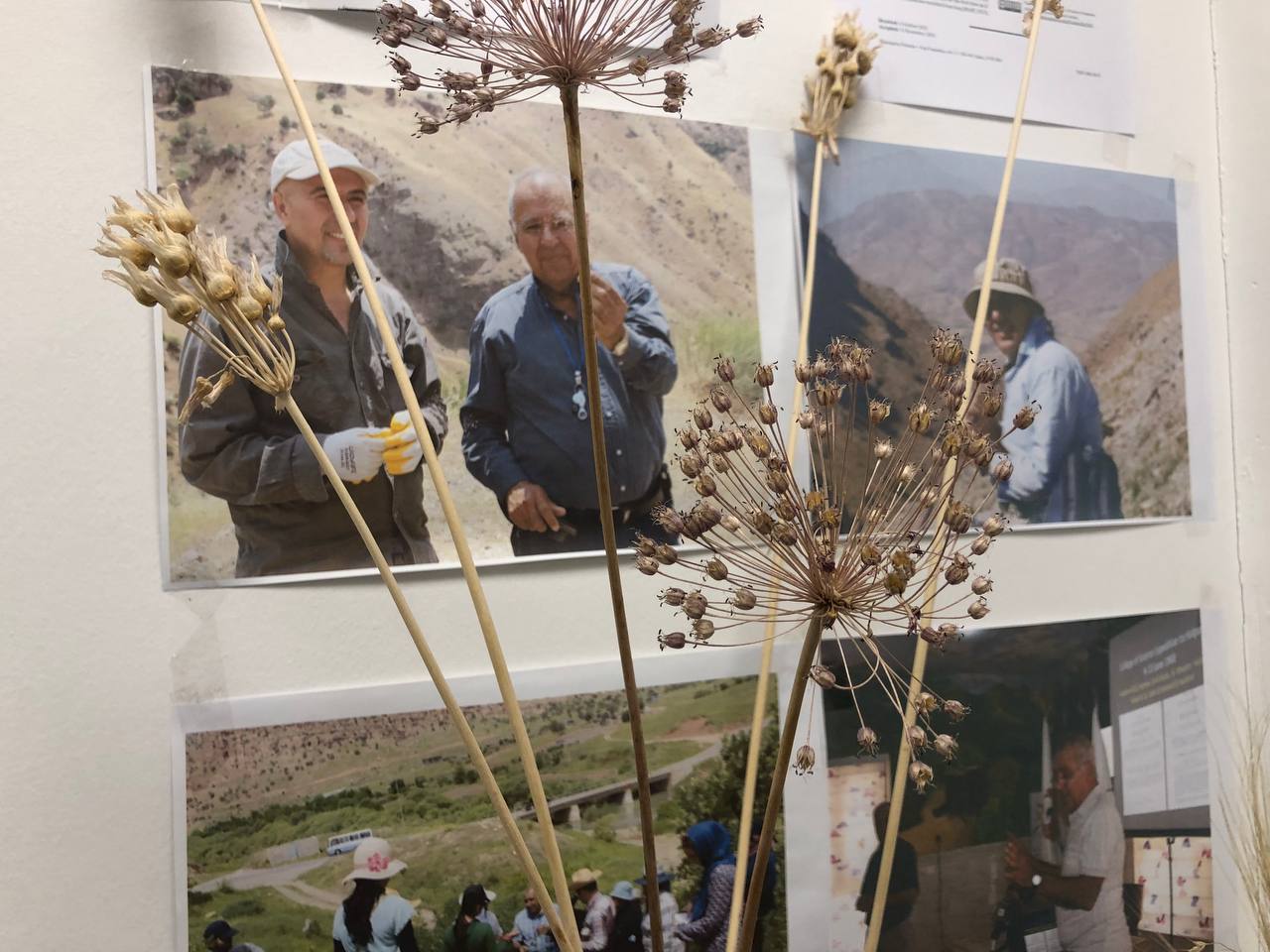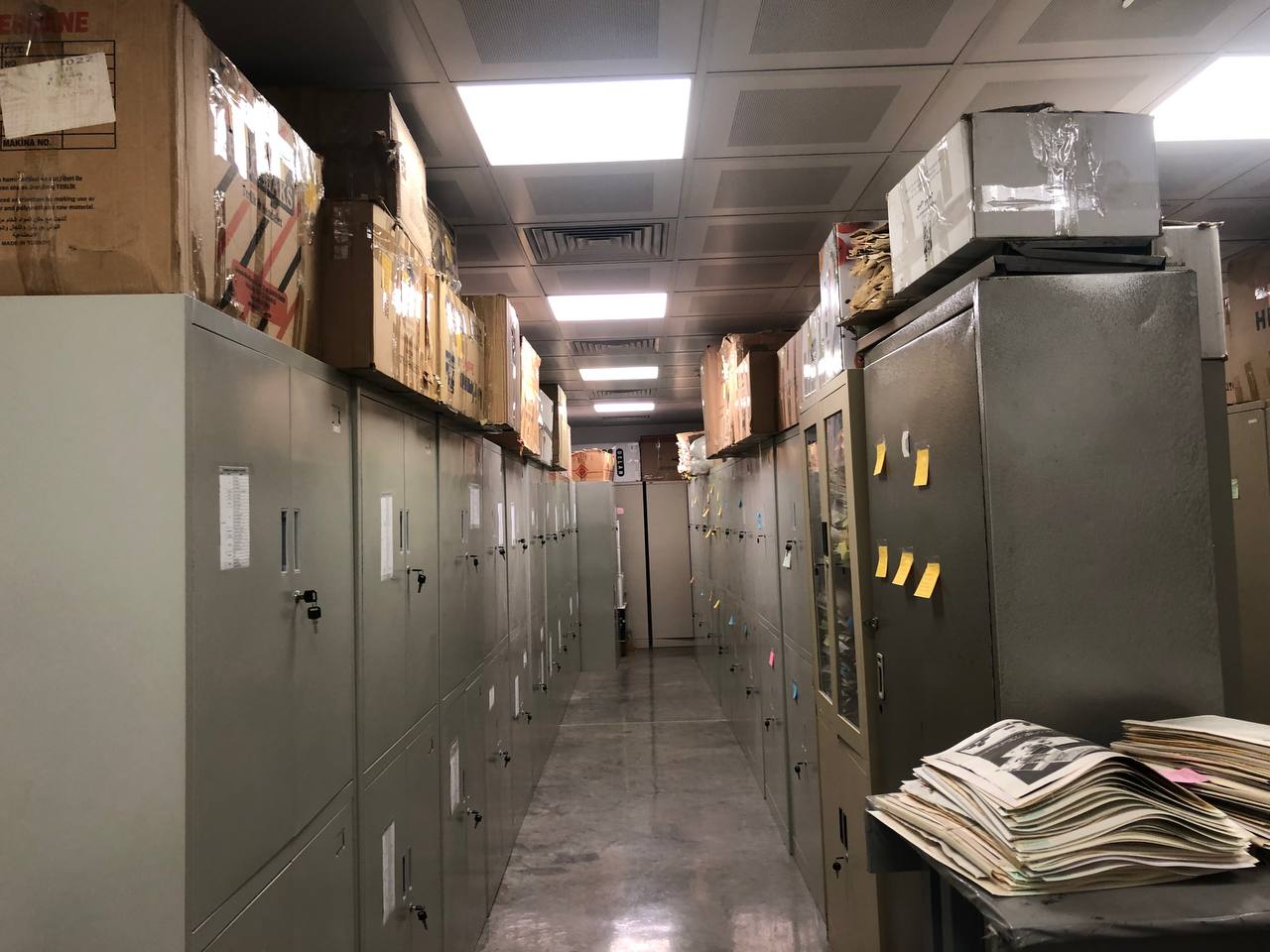
The Kurdistan Botanical Foundation has registered and classified 70,000 specimens of plants and trees in order to bank, protect and prevent the risks of their extinction. The goal is to take one million samples from each plant and tree.
The efforts of this group coincides with rapid climate change in the world and Iraq, including rising temperatures and desertification, which according to environmental and climate experts has a direct impact on the destruction of many species of plants and trees.
The Kurdistan Botanical Foundation experts say one species of Pine tree in Kurdistan region of Iraq KRI is becoming extinct due to climate change, with only five trees remaining. Dozens of other species of trees and plants are becoming extinct for the same reasons, including water shortages and human interference in genes.
The Kurdistan Botanical Foundation stands on its feet
Kurdistan Botanical Foundation was established 13 years ago, chaired by Dr. Saman Abdulrahman, who is an expert in botany and has been working in Kurdistan's plants and nature for 22 years.
Dr. Abdulrahman says that in his experience of mixing with nature and plants, he found that trees and plants are disappearing, which led him to think about establishing Kurdistan Botanical Foundation with the help of a number of experts and university professors.
The institution is generally non-profit, located in four rooms on a basement floor of the American University in Sulaymaniyahya Iraq AUIS.
Upon entering, various posters and information on plants and trees are hung. "We have 70,000 samples of plants and trees, and one million samples have been collected from each plant and tree," Dr. Abdulrahman said.

Dr. Sarbach Salih, wife of former Iraqi President Barham Salih, played a key role in the establishment of the institution, along with 20 to 25 others. “It would not have been possible without them,” Dr. Abdulrahman said, adding that the Kurdistan Botanical Foundation plays an important role in maintaining food security.
“I love my institution more than my home. I have never felt tired. Every day I come here I feel like it's my first day working and learning new things,” Dr. Abdulrahman defiantly said.
The institution has turned into a reference for post graduate students.
Ahmad Habib, who is studying for his doctorate on plant classification in Garmian, has visited the institute several times in preparation for his thesis.
“The Kurdistan Botanical Institute is the only place in Kurdistan to do this so that students can use it for their research,” he said.
Conservation of plant genes
According to Dr. Abdulrahman, the genes of many plants and trees are being changed due to human modification.
"Climate change, rising temperatures, low rainfall and desertification are among the factors that have a direct impact on the destruction of some plants, our efforts to protect them," he said.
According to the United Nations, Iraq is the fifth most affected country by climate change.
The highest temperature in Iraq has been recorded for several years, for example, last year the highest temperature was recorded in Khanaqin district of Diyala province, which reached 51 degrees Celsius.
The Kurdistan Botanical Institute, in collaboration with the AUIS and National Geographic, is currently conducting vegetation surveys in the areas of Qaywan, Qaradag, Azmar, Goyzha, Halgurd and Sakran in Sulaymaniyah province.
"We have registered all the plants and trees in those areas," Dr. Abdulrahman said. "Our goal is only to serve; we are trying to do much better.”
The institute is trying to build a gene bank in Hawari Shar Park in Sulaymaniyah. “These samples can be taken there and used,” Dr. Abdulrahman said.
A gene bank is a place to store and preserve the resources of plants and trees and is one of the most important institutions in any geographical area.

"Every nation, country and region must have a gene bank project that future generations will need," Dr. Abdulrahman said.
Hiwa Bayiz, director of agricultural research in Sulaymaniyah, said they are aware of the work of the institute and the efforts to create the Kurdistan Gene Bank.
The Gene Bank has been allocated 100 dunams of land in Hawari Shar in Sulaymaniyah and is funded by the United Nations’ Food and Agriculture Organization (FAO).
“The location of the gene bank is good because it is far from the city, environmental changes and close to the seeds,” Bayiz said.
“They are playing a very good role in embodying the infrastructure of basic data about plants in Kurdistan,” said Khalid Suleiman, an environmental researcher who is aware of the institute's activities.
Discovery of new plants
In addition to classifying and protecting the species of plants and trees in the KRI, the institute is looking to discover new plants and trees. Dr. Abdulrahman says they have discovered 30 new species of plants.
"Discovery means that the plants are new to science all over the world. For example, we have named the Salvia Ali Askari plant after Dr. Ali Askari, and the Sailin Shabazia plant after Ihsan Shabaziya.
Others urge the foundation to promote for medical plants and seeds in the region.
Qayum Abdulkarim, a botanist who has been working in the field for 40 years, said it is important for the institution to develop the field of medicinal plants.
"The institution is an important center for guidance to citizens, there should be guidance for this purpose in the spring, so that citizens do not uproot the plants.
He cited the example of Giasalma, which is now in danger of extinction because people used to uproot it.
Ismail Mushir, president of the Kurdistan Botanical Society, which has more than 700 members, said: “The danger of extinction is because some people remove the roots which are used for ice cream. It is now in danger of extinction.”
"This shows that institutions like the Kurdistan Botanical are important for preserving and storing plant seeds, trees and then planting them," Mushir added.

The efforts are "limited"
Botanists and environmentalists believe the institute's work is limited to a specific geographical area.
"Their research does not cover all regions of Kurdistan, although their work is a very good resource for the media, journalists and to develop their level of environmental knowledge," Sulaiman said.
Other experts, including Abdulkarim, believe that the government is not cooperating at the required level to support such efforts.
"There is no relevant government agency to listen to botanical experts. I served in the agricultural research department of the Halabja Agricultural Office where I developed a section for medical botany but it was shut after I retired.”
The field is diverse and complicated for the foundation to cover.
"I had such plants for seven months until I classified them. There were some plants that I abandoned. After all the research, I didn't know what kind of plants they belonged to. However, my friends and I are still working," the head of the foundation said.
“The government even prevented us from establishing the institution. We had three years to come and go. Everyone said let it be in a different city,” Dr. Abdulrahman recalls.
Due to lack of budget, the institution has reduced the number of employees from 16 to only four. “Even sometimes there were political obstacles in different areas, which was a big obstacle,” Dr. Abdulrahman added.
"If the institute has the necessary budget, it can classify all the plants in Kurdistan," said PhD candidate Habib.
Jutyar Khalid, deputy director general of agriculture in Sulaymaniyah, said that they have sent two employees to help foundation to separate and identify plants, and considered the establishment of the institution important, but “It is not under our supervision and approval.”
"They themselves, as the Ministry of Agriculture, are building a gene bank to store plant seeds and protect them from extinction," he said.
*This story has been produced as part of the program to expand the role of women journalists in environmental coverage, implemented by KirkukNow Media Outlet and funded by the Ministry of Foreign Affairs of the Federal Republic of Germany.